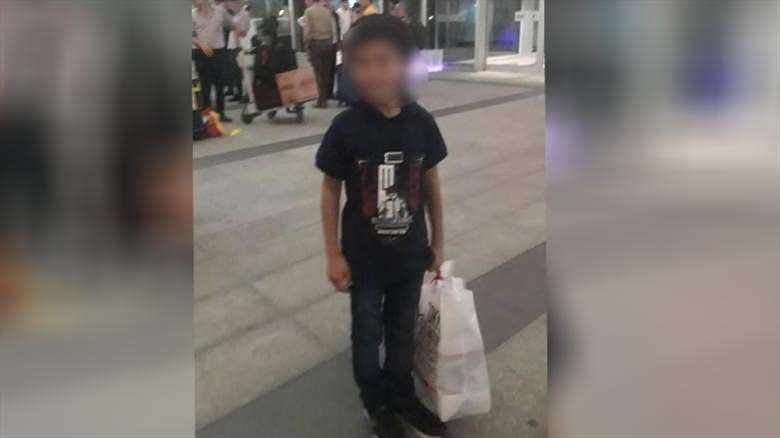Yezidi child kidnapped by ISIS in 2014 reunites with his family in Kurdistan

ERBIL (Kurdistan 24) – An 11-year-old Yezidi (Ezidi) boy kidnapped in 2014 by Islamic State fighters from his native Sinjar (Shingal), in Iraq's Nineveh province, and later taken to Syria has been reunited with his family in the Kurdistan Region on Thursday.
Hussein Qaidi, from the Kurdistan Regional Government's (KRG) Ezidi Rescue Office, said that the boy, accompanied by his uncle, first arrived in Erbil and soon thereafter traveled northward to Dohuk province.
“He was kidnapped along with his family five years ago and was moved to Syria where he was given radical military training to use weapons, along with dozens of other kidnapped children,” he told Kurdistan 24.
According to Qaidi, the child and his family were living in the village of Tal-Qasab when it was taken over by Islamic State militants.
“After seeing him in video footage of Aleppo, Syria, we were able to identify him and gather the required information on his whereabouts,” he explained. “His uncle went to Syria to recover him, then to Turkey, and then on to Kurdistan.”
The emergence of the Islamic State and its violent assault on Shingal led to the displacement of hundreds of thousands of members of the Ezidi religious minority, who were considered by the jihadist group to be heretics. Most of them fled to the Kurdistan Region, while others resettled in neighboring countries in the region or Western states.
Before the 2014 attack, there were roughly 550,000 Ezidis in the Kurdistan Region and Iraq. As the jihadist group took over large swaths of territory in Nineveh Province, 360,000 Ezidis escaped and found refuge elsewhere.
Others were not as lucky and remained stranded in the war zone, where they experienced atrocities and mass executions at the hands of the extremist group for years. Militants subjected women and girls to sexual slavery, kidnapped children, forced religious conversions, executed scores of men, and abused, sold, and trafficked women across areas they controlled in Iraq and Syria.
According to the Kurdistan Region’s Ezidi Rescue Office, 3,477 children, women, and men have so far been rescued from the radical group, efforts to find and rescuing the rest are still ongoing.
On Wednesday, Ezidi activist and Nobel Peace Prize Laureate Nadia Murad introduced a five-step plan to facilitate the return of Ezidis now living in displacement camps to their original home of Shingal.
Read More: Nobel Peace Prize winner Nadia Murad presents five-step plan to aid return of Yezidis to Shingal
Murad’s comments came during a speech at the 2019 Ministerial to Advance Religious Freedom conference in Washington. The event brings together leaders from around the world to discuss the challenges facing religious freedom, identify, means to address religious persecution and discrimination worldwide, and to promote greater respect and preservation of religious liberty for all.
“There are concrete steps that can be taken to support the recreation of the Ezidi community, and essential steps toward the end of the [Islamic State] genocide,” she said.
Editing by John J. Catherine
